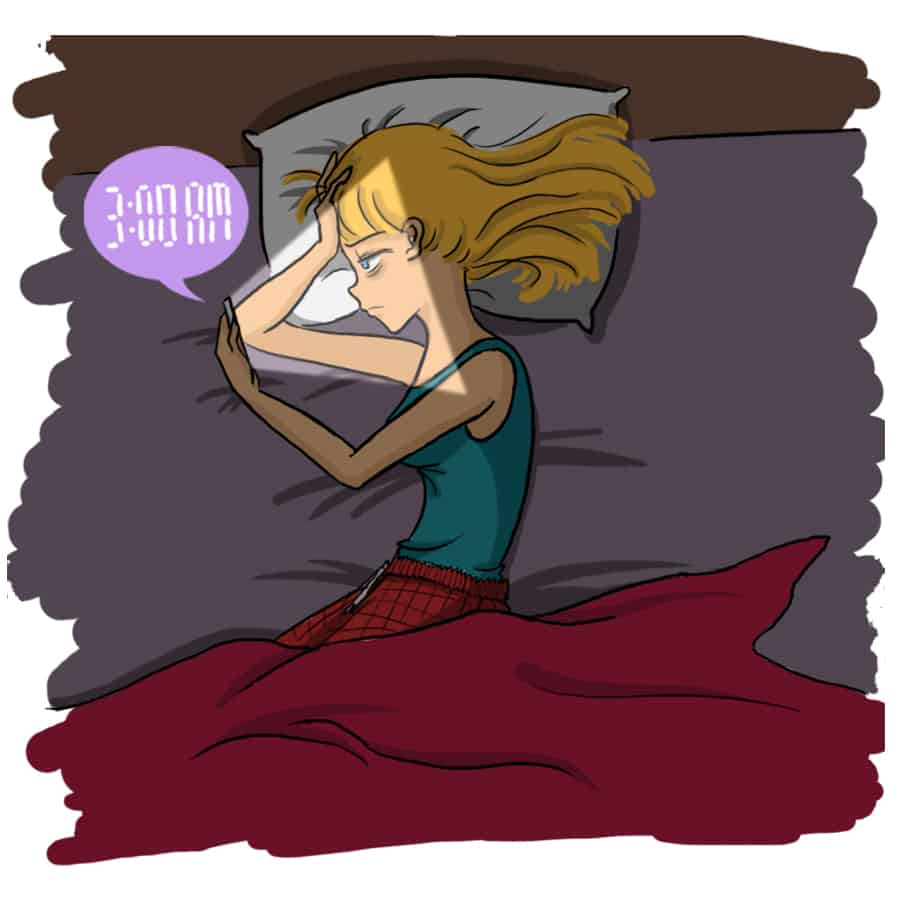A countless number of psychological and clinical studies have shown strong evidence-based links between somatic conditions, such as chronic illnesses, and sleep; however, little research has been done on the relationship between childhood maltreatment and adult sleep patterns.
A recently published population-based study conducted by a team of researchers from U of T, the University of Ottawa, and Western University, has concluded that multiple incidents of childhood maltreatment make it twice as likely that an adult will have trouble sleeping than an adult who was not mistreated earlier in life. Philip Baiden, lead author of the study, and PhD student at U of T, and his team used a representative sample of 19,349 adults from the Statistics Canada 2012 Canadian Community Health Survey.
The fact that childhood maltreatment is a predictor for troubled sleep in adults is a significant finding. According to Baiden, “there have been studies showing that individuals who experience maltreatment are more likely to have cancer, and they’re more likely to be obese.” With an amount of extant literature on the clinical effectors of maltreatment, it was clear to Baiden’s team that the gap in knowledge was linked to how childhood maltreatment affected sleep in adulthood. As such, Baiden “got interested and decided to look and see how this plays [out] nationally within a Canadian context.”
Childhood maltreatment was operationalized in the study as witnessing domestic violence, or experiencing physical or sexual assault prior to the age of 16. Of the adults in the sample, 50 had experienced at least one childhood adversity. Of these 50,, 14 of them reported trouble sleeping.
The study also found that individuals who had experienced events related to sexual abuse had more trouble sleeping than those who had experienced exclusively other types of maltreatment. Baiden also found that “ …a combination of various maltreatments, the multiplicity of it, … is more likely to make sleep problems more severe.” Ultimately, prolonged exposure to abusive childhood experiences, in particular sexual maltreatment, was a significant influence on sleep difficulties in adults.
As with many epidemiological studies, several challenges exist in concluding which factors are significant and also in choosing which precise statistical model functions best for a given study’s objective. In this study, the research team was able to conclude that childhood maltreatment can account for 20 per cent of the variance in adult sleep patterns. Baiden explains that amongst a plethora of predictors of sleep problems, “there’s still quite a bit of unexplained variance… being able to explain something around 20 [per cent] is quite substantial, and of that alone, childhood maltreatment has contributed about half of that, taking into account chronic conditions such as stroke, cancer, migraines, and [also controlling] for mental health factors such as depression and pain.” While the science of epidemiology rests on the fine balance between controlling as many factors as possible and trying not to “over-specify the model,” the results of this study suggest that certain events in childhood come back to pose problems later in life — specifically in the form of troubled sleep.
Establishing a significant link between abusive events in childhood and adult sleep is important for future clinical preventative and therapeutic measures — even health policy. To Baiden, people do not generally “pay much attention to [sleep problems]” that can cause severe impairment to everyday life. Early identification, diagnosis, and intervention can be strengthened using the results of this study.
The study also considered factors such as gender and immigrant status. Notably, women were more likely to have sleep trouble, for which the causes are as of yet, still to be examined. Within immigrant populations the data suggested that “immigrants are less likely to have trouble sleeping”, particularly those “who have been able to assimilate successfully,” according to Baiden. Race is another factor that is yet to be explored, although because Statistics Canada doesn’t collect specific racial data on this there was insufficient data for racial analysis.
Notably, instances of abuse and neglect — whether physical or emotional — have widespread implications for the mental and physical wellbeing of children as they mature. Understanding the social causes of troubled sleep, among several other downstream effects of maltreatment, is essential for evidence-based policy and clinical decisions.


